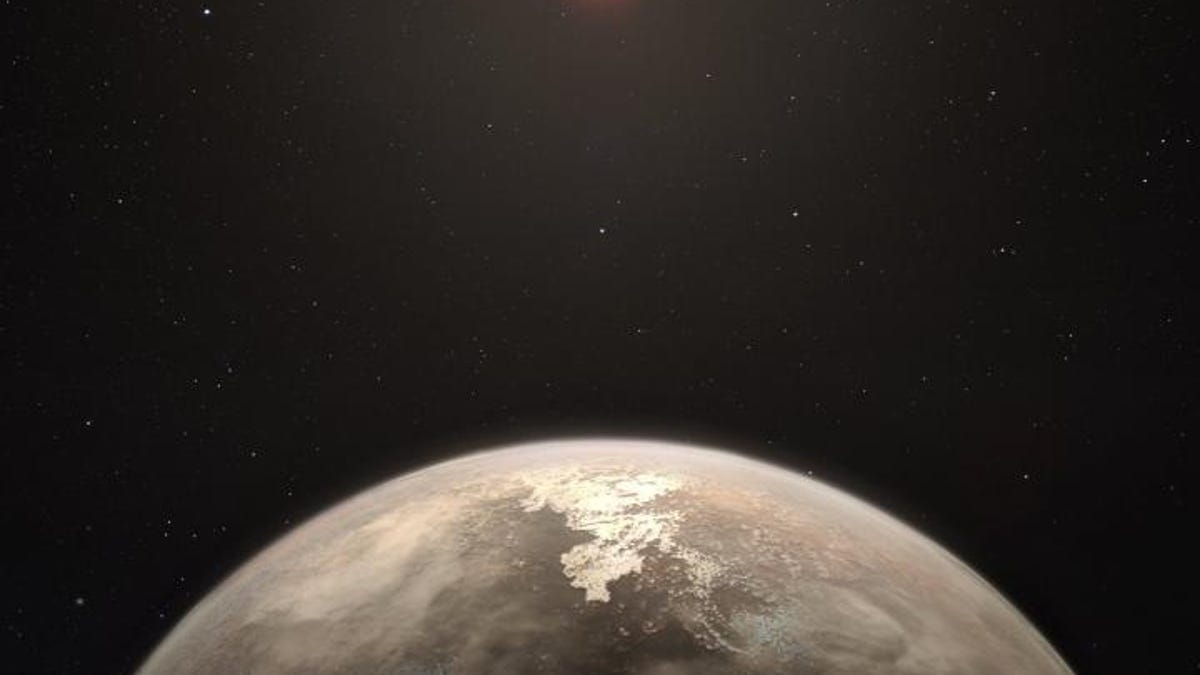The weather looks fine on nearby Earth-like planet Ross 128 b
Ross 128 b is the second closest rocky planet beyond our solar system, but it may be the nearest exoplanet worth checking for aliens.

An artist's conception of Ross 128 b.
Conditions on the nearest Earth-like planet beyond our solar system might not be too friendly to life, but new research indicates that the situation on the next closest exoplanet may be much more hospitable.
While the nearest star beyond our sun, Proxima Centauri, appears to blast its only known planet with nasty sterilizing flares, Ross 128 is just seven light years more distant and orbited by a rocky planet, Ross 128 b, with a much more favorable forecast.
"Although Ross 128 b is not Earth's twin, and there is still much we don't know about its potential geologic activity, we were able to strengthen the argument that it's a temperate planet that could potentially have liquid water on its surface," Diogo Souto, of Brazil's Observatório Nacional, said in a release.
Souto is lead author on a paper published last month in Astrophysical Journal Letters that looks at the chemical composition of the star Ross 128 and infers certain characteristics of both the star and its planet.
"It's exciting what we can learn about another planet by determining what the light from its host star tells us about the system's chemistry," Souto said.
Basically, the ratio of iron to magnesium in Ross 128 indicates that Ross 128 b should have a core larger than Earth. This helps estimate the size of the planet, which then helps astronomers' guess at the climate of the distant world.
And the early indications are that the weather might be just fine there. This adds to the good news about the space weather around Ross 128, which is considered a "quiet" dwarf star that doesn't emit many flares, unlike Proxima Centauri.
All this puts Ross 128 b near the top of the list of best places to like for alien life, and there was even hope last year that we might be picking up some strange signals from the Ross 128 system. That turned out to be a false alarm, but astronomers plan to keep checking back.
Technically Literate: Original works of short fiction with unique perspectives on tech, exclusively on CNET.
Crowd Control: A crowdsourced science fiction novel written by CNET readers.

